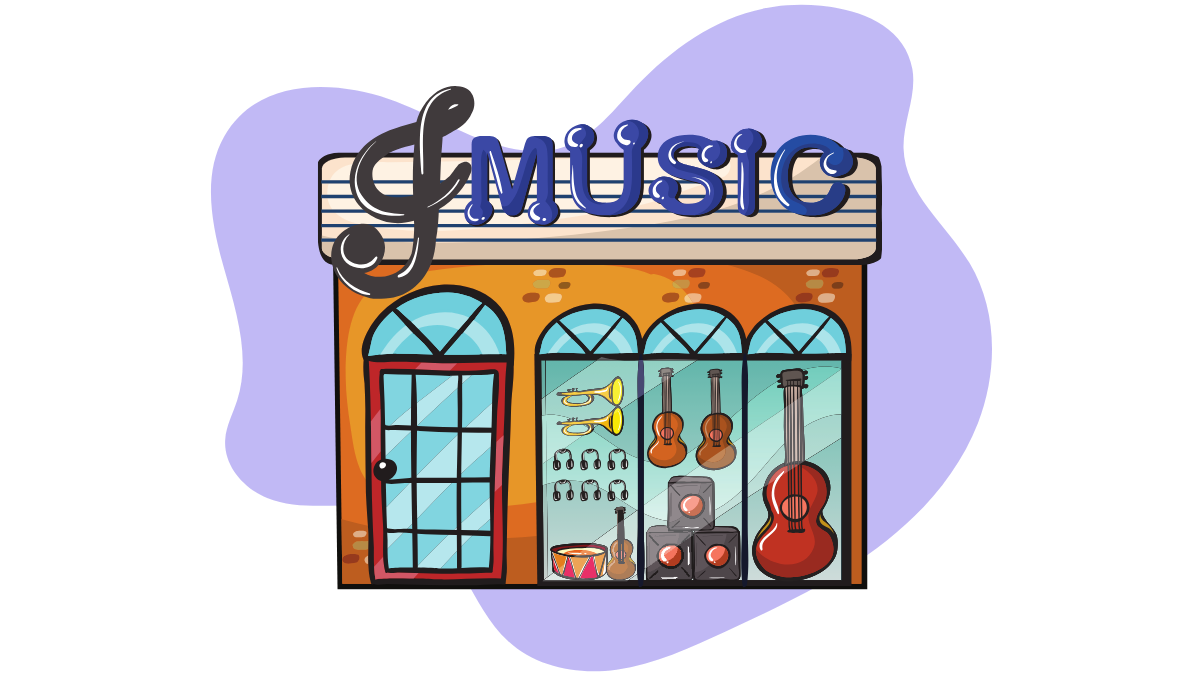Social media is a powerful platform for music stores to engage with musicians, promote instruments, and drive sales. This guide outlines effective strategies to leverage social media for increased visibility, engagement, and customer conversion in music stores.
Target Audience
Identify the primary audience for music store social media marketing:
- Musicians & Aspiring Artists – Engaging individuals seeking musical instruments, equipment, or gear for performances.
- Music Students & Educators – Targeting students, teachers, and schools seeking instruments, sheet music, or instructional materials.
- Local Community – Attracting music enthusiasts interested in workshops, events, or community music programs.
- Gift Buyers & Collectors – Engaging individuals seeking unique instruments, memorabilia, or gifts for music lovers.
Goals
Define the objectives of utilizing social media for music store marketing:
- Product Promotion & Sales – Showcasing instruments, equipment, accessories, and encouraging purchases.
- Event Promotion & Participation – Advertising music workshops, demo days, performances, and attracting attendees.
- Brand Awareness & Differentiation – Establishing the store as a go-to destination for musical needs, showcasing expertise, and unique offerings.
- Engagement & Community Building – Fostering engagement, sharing musical tips, and building a community of musicians and enthusiasts.
Platforms to Focus On
Identify key social media platforms for music store marketing:
- Instagram – Visual platform showcasing instruments, equipment, musician spotlights, and behind-the-scenes glimpses.
- Facebook – Utilize business pages, event promotions, live demos, and engagement with the local music community.
- YouTube – Share demo videos, instrument tutorials, product reviews, and musician collaborations.
- Twitter (Optional) – Share store updates, music news, promotions, and engage in music-related conversations.
Content Strategies
Develop content strategies tailored for music store marketing:
- Instrument Showcases & Features – High-quality images/videos showcasing instruments, equipment, and gear.
- Musician Spotlights & Testimonials – Featuring local musicians, customer experiences, testimonials, and performances.
- Event Previews & Workshops – Sharing schedules, workshops, live sessions, and post-event highlights.
- Musical Tips & How-To Guides – Providing instrument care tips, playing techniques, and tutorials for musicians.
Engagement & Conversion Tactics
Implement strategies to engage music enthusiasts and convert social media traffic into sales and event participation:
- Call-to-Action (CTA) – Encouraging followers to visit the store, inquire about instruments, or attend music events.
- Live Demos & Q&A Sessions – Hosting live sessions featuring instrument demos, Q&A with musicians, or gear reviews.
- Special Offers & Discounts – Promoting sales, limited-time offers, bundle deals, or discounts for music lessons.
- Contests & Collaborations – Engaging followers in contests, collaborations with local musicians, or music challenges.
Analytics & Optimization
Utilize analytics to measure and optimize social media performance for sales and engagement:
- Engagement Metrics – Monitor likes, comments, shares, and engagement across social media platforms.
- Conversion Tracking – Track website visits, store inquiries, sales, or event registrations from social media referrals.
- Audience Insights – Understand demographics, musical preferences, and engagement patterns for targeted content.
- Campaign Optimization – Adjust strategies based on performance, analyze successful content, and refine targeting.
Challenges & Solutions
Address potential challenges in music store social media marketing:
- Product Differentiation & Range – Showcasing diverse instruments, accessories, and highlighting unique offerings.
- Online vs. In-Store Sales – Balancing online sales efforts while encouraging in-store visits and personal interactions.
- Managing Inventory & Demand – Addressing stock availability, managing high-demand items, and offering alternatives.
- Engaging Community & Retaining Interest – Maintaining customer interest, offering valuable content, and fostering a music-loving community.
Conclusion
Leveraging social media effectively can significantly enhance brand visibility, engagement, and sales for music stores. This guide provides a roadmap for engaging musicians, showcasing instruments, and building a strong online presence in the music retail industry.



